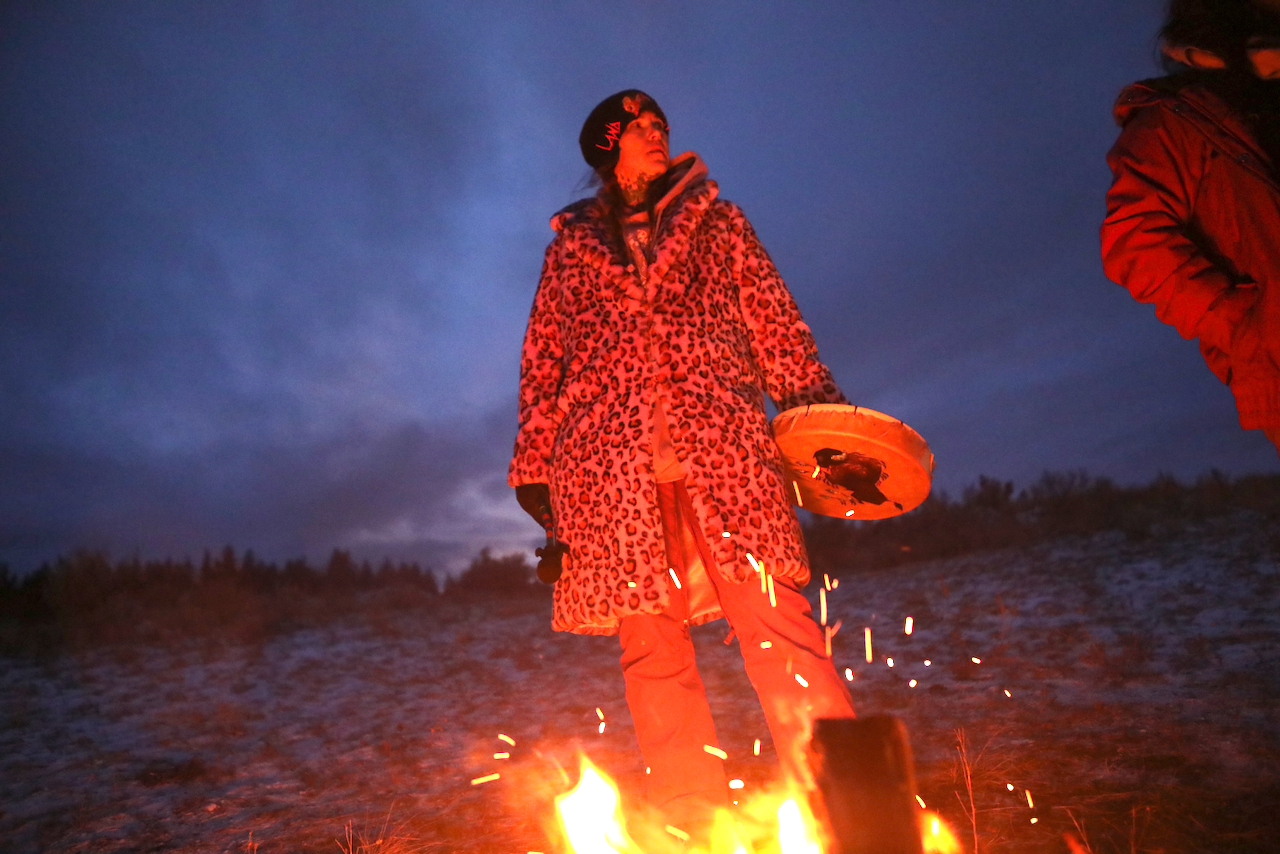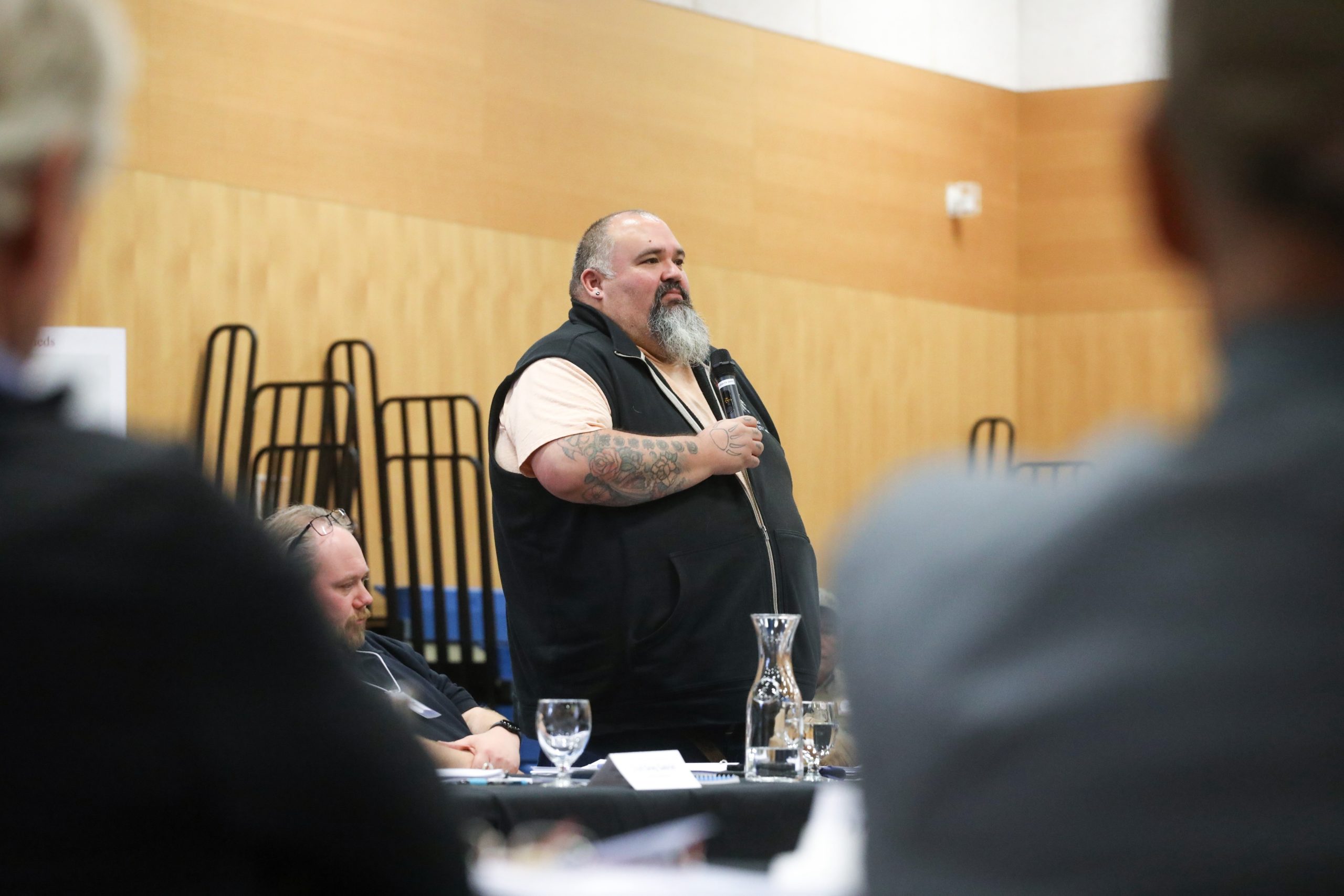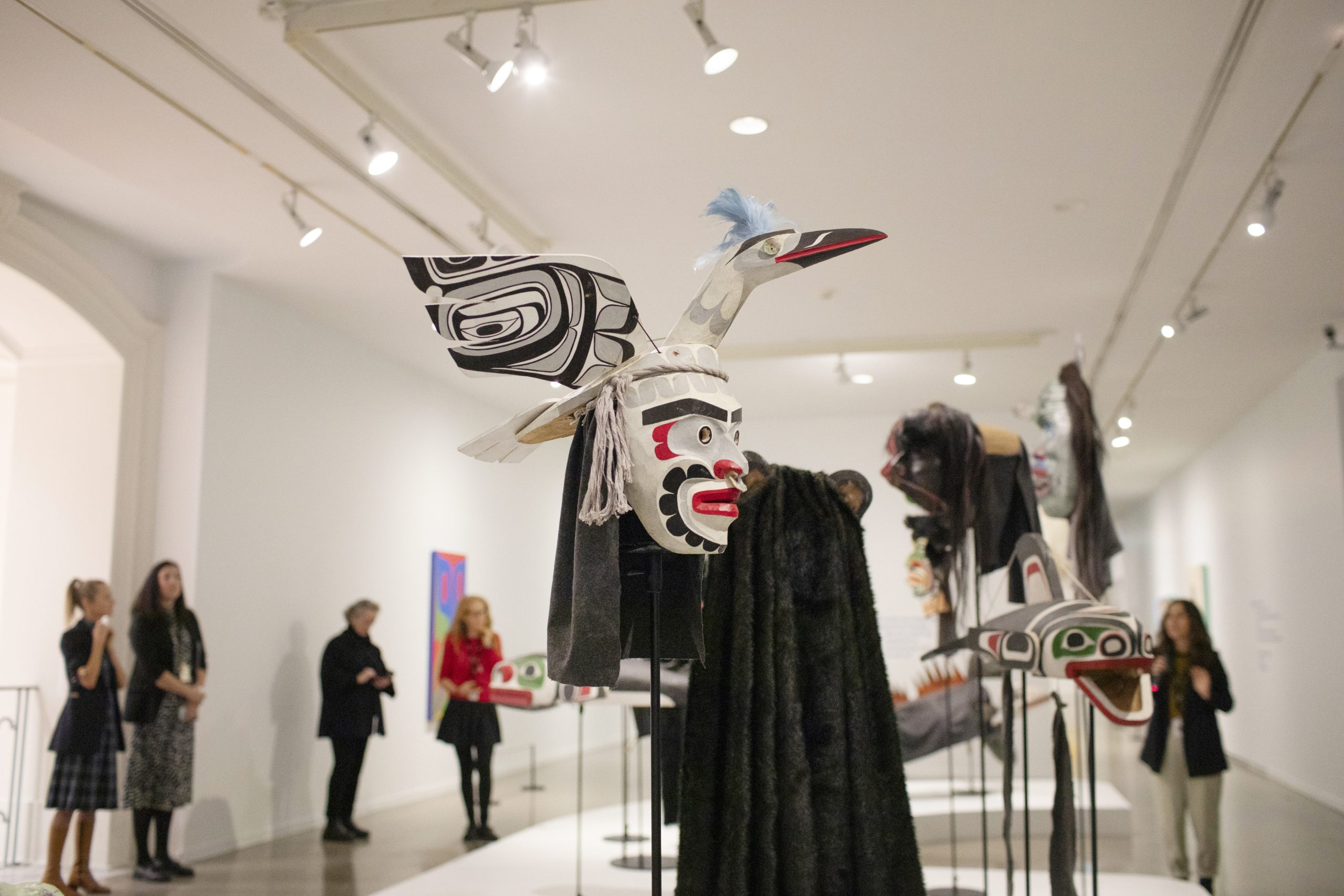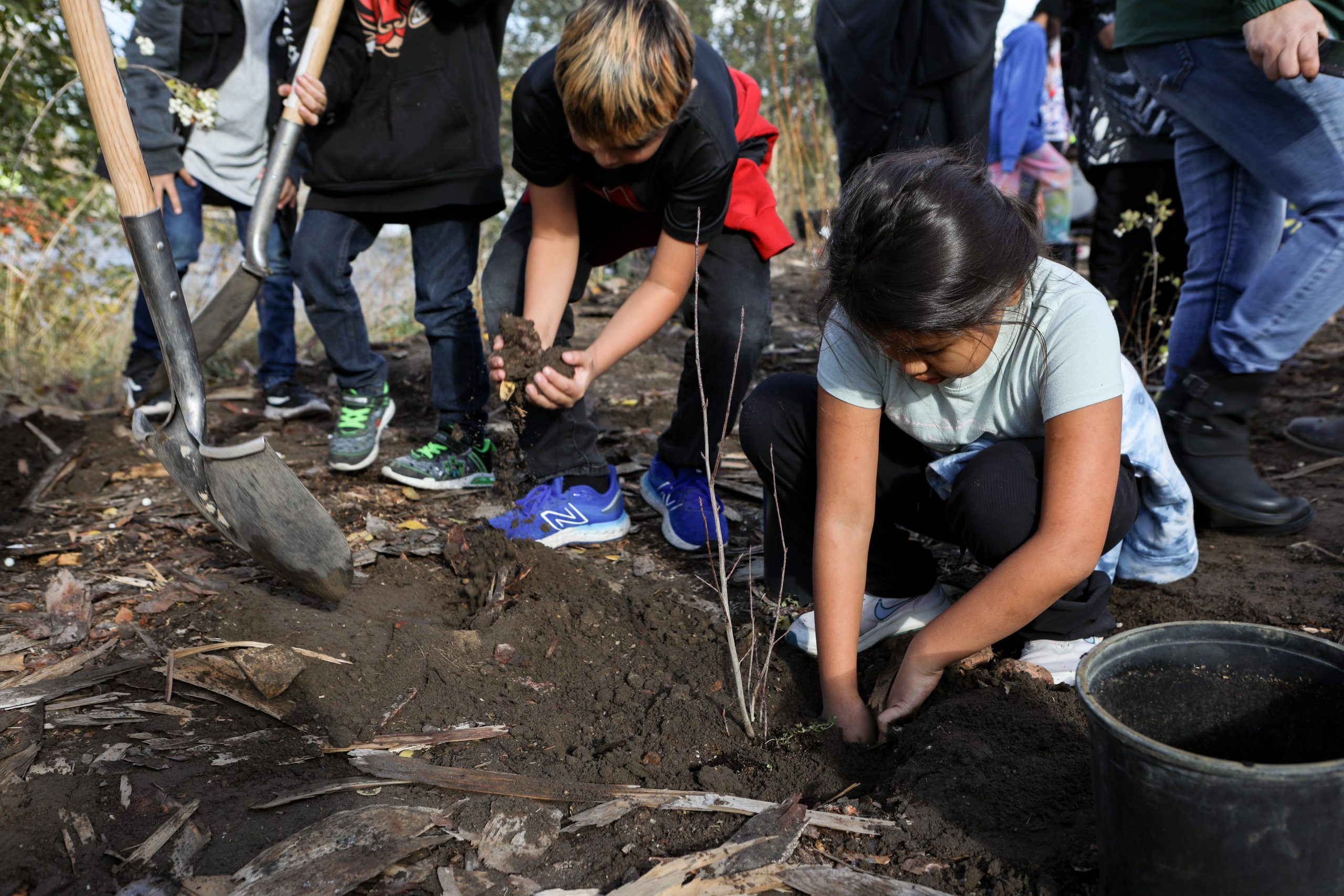Eden Fineday joins the IndigiNews team as business Aunty
‘By centering the perspectives of Indigenous Peoples, we’re creating something radical and beautifully revolutionary,’ says Fineday.

As we approach 2022, the team at IndigiNews is working hard to create a safe space for storytelling. To do that, a lot of work goes on behind the scenes, and that’s why we are so excited to announce Eden Fineday as our new business Aunty.
Eden is a nehiyaw multidisciplinary artist from the Sweetgrass First Nation in Treaty 6 territory. She’s a songwriter, mother, enthusiastic supporter of her community, an upcoming author of middle-grade fiction, and a lover of spreadsheets.
“I feel like I’ve been leading two lives for a long time,” she tells us.
“My public life has always been as an artist. As a creative, I’ve written fiction and creative non-fiction and I’m a songwriter and singer who has written and recorded multiple albums. But I’ve also held administrative jobs for decades, including as a federal public servant for about ten years. So I guess my dark secret is that I love spreadsheets and databases! I love how concrete they are.”
In this new role she will support our reporters and editors, cultivate good relations with new and existing funding partners, and help nurture IndigiNews in many ways so it can continue to grow.
We sat down with Eden to talk more about her role. Here’s what she has to say:
IndigiNews: How do you see Indigenous-led media amplifying Indigenous voices?
Eden Fineday: It’s never too late to start listening to Indigenous voices. We are at a crucial crossroads in human history, and I believe Indigenous values and cultural teachings are essential to us navigating this time successfully as a species.
I: Tell us a bit about the experiences on your journey that brought you here.
EF: I was born on the Sweetgrass First Nation in Treaty 6 territory, at a time when an unmarried white woman having a baby with a Native man could lead to her child being removed from her. So, I wasn’t born in a hospital, and there was no doctor or midwife present at my birth. There was just my brother, sister and one aunt, plus my mom and dad. I was raised in Vancouver, though, and didn’t reconnect with my dad’s side of the family until I was about fourteen.
I left Canada as a teenager. Dropped out of high school and everything and ran off to California, where I worked as a public speaker promoting environmental awareness to high school students. I ended up staying in Santa Cruz, California for ten years, and getting my Bachelors in Language Studies while I was there. When I moved back to Canada in 2003, that’s when my identity as an Indigenous person really started to develop. I felt close to my Indigenous family members, but most of them were in Saskatchewan, and I didn’t feel like I had access to my culture out here. Then my cousin John Henry, who I was really close to, died of leukemia in 2006 and my other cousin who I was close with ended up in prison for a few years, and I felt really cut off from my People. It was a tough time for me.
Over the years, however, Indigenous people and issues were brought to the attention of the public more and more, especially with the Truth and Reconciliation Commission. My understanding of my cultural teachings began to deepen, and I was able to connect with other Native folks here in B.C., including a lot of nehiyawak, which has been so good for me. I still try to visit the rez regularly, but a lot of my cousins have moved away or gone to prison or died, so there’s less there for me now. However, I still have nieces and nephews back home that I love, and my dad and I are quite close now, so we speak often.
I: IndigiNews is now almost two years old as a platform. What do you want people to know about the work that we do?
EF: I’ve been thinking alot about colonialism and how it shows up in our everyday lives. You can see it everywhere, across all areas of life. It colours our relationships, both to ourselves and to each other. We start seeing each other as resources to use and then throw away, rather than as spiritual entities who deserve respect and love and support. I feel like IndigiNews is doing something really special that’s cutting across the effects of capitalism and colonialism. By centering the perspectives of Indigenous Peoples, we’re creating something radical and beautifully revolutionary. I can see myself in their stories, and that’s a first for me, and I know a lot of other Native people feel the same way.
I: What are you working on first?
EF: As business Aunty, I’ll be working on the contracts we use, our relationships with our funding partners, the human resources side of things, and also budgets. I see myself as being someone who has the bird’s eye view of what we’re doing, and that includes looking at the editorial calendar, doing a little editing as needed and just supporting the team in whatever way I can.
I: How can people get involved and support you and the team?
EF: Honestly, what we really need now is financial support. We’ve been lucky enough to receive some grants, but there’s no guarantee that those grants will be renewed, and there are colonial constructs embedded into the granting process that feel limiting and paternalistic to us. It’s impossible to really decolonize if we are not given the freedom to express ourselves as First Nations people, which means doing things differently, our way. I think the culture of always being stressed out and rushing in typical newsrooms is not how we want to operate here. We don’t want to focus solely on output; we can’t do that and stay healthy. How we get there has to be just as important as what we do, or we will end up just like any other news organization.
I: Anything else you want to share?
EF: Yes! I’m studying French again. One of my goals is to be fluent enough to be able to discuss decolonization in French someday, as part of my activism.
I: Something we like to ask everyone is what are your hopes and dreams for the future of the Youth coming up behind us, what do you want to see for them?
EF: I want everything for them: language, ceremony, a connection to the earth, intact families, all of it. I want them to feel respected and seen in classrooms and doctors offices. I want them to experience being loved and safe, all the time. I want them to see their faces and stories reflected back to them when they watch a show or read a story. Now that Canada has finally stopped it’s campaign of whitewashing our genocidal history, other children, the peers of our youth, will know the truth from a very young age. I believe this will have an incredible ripple effect, so that by the time the Youth of today are grandparents, “Canada” will be transformed.
Author
Latest Stories
-
‘Bring her home’: How Buffalo Woman was identified as Ashlee Shingoose
The Anishininew mother as been missing since 2022 — now, her family is one step closer to bringing her home as the Province of Manitoba vows to search for her
-
Will you help us tend to the fire?
IndigiNews is launching a fundraising campaign to support our storytelling into 2026












